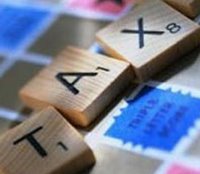 | « Back to article | Print this article |
 A walk through the sprawling building of the Centralised Processing Centre on Hosur Road near Electronics City in Bengaluru does not give an inkling that it is a government department -- a sensitive one like the Income Tax department.
A walk through the sprawling building of the Centralised Processing Centre on Hosur Road near Electronics City in Bengaluru does not give an inkling that it is a government department -- a sensitive one like the Income Tax department.
This is where 300-odd executives of Infosys and 30 I-T officials, headed by commissioner Sanjai Kumar Verma, process all I-T returns filed electronically (e-filing) across the country and all paper filings of Karnataka.
No red tape, no peons, and no feel of traditional government set-up, and it has only a few cabins with people at their terminals.
Unless one makes a special inquiry, it is unlikely one would find the I-T commissioners, officers and even professionals of Infosys -- the IT vendor that has partnered the department in the initiative.
"We are gradually shifting from being an enforcement-oriented department to a service-oriented one. The motto of CPC is to provide better 'customer service', not just be a revenue generator," said an official of the department, requesting not to be named.
"We are faceless back office people
we don't want to be mentioned," R Kishore Kumar, the income tax official to receive and process the first income-tax return at CPC, said.
Corporate terms like 'customer service' are slowly creeping into the CPC culture.
The fact is, this is perhaps one of the investments by the Central government where the return on investment is expected to come within a short span.
Since starting operations in July 2009, the centre is estimated to have saved the government over Rs 1,200 crore (Rs 12 billion), which would have otherwise gone towards interest on pending refunds to the taxpayer.
Before CPC came into the picture, the standard time required to process I-T returns was at least 2-3 years. Any return filed in a particular assessment year with refund claims of over Rs 10,000 attracts an interest of 6 per cent per month from April next year.
The government pays about Rs 5,000 crore (Rs 50 billion) towards interest on refunds every year. With CPC, the time taken to process the returns has come down to 3-4 months.
Besides, with the processing being done quickly, the CPC is understood to have generated about Rs 40 crore (Rs 400 million) from those who had had to pay in excess of what they had already paid.
"The cost for the centre may not be even that much. We have already recovered double the amount we might have paid to Infosys," said a senior official.
In February 2009, the Cabinet approved the proposal of the I-T department to establish a centralised processing centre in Bangalore for processing all electronically filed returns in the country.
After a competitive bidding process, the tender was awarded in March 2009 to Infosys, India's second-largest IT services company.
Being its first transformational government project in India, Infosys engaged its best engineers.
As a result, the software was ready in six months.
The I-T officials who are part of the project also played a major role in giving their inputs and validating the software to ensure it meets the requirements.
"We worked hand-in-hand and at every step of the development, we stood beside them. Whenever there is a domain-related issue, we are there to guide them. The software was tested by us as our team created various test scenarios to validate its performance," said another I-T officer.
For Infosys, being one of its pet projects, the centre was frequently visited by Chairman N R Narayana Murthy and Director and Board Member T V Mohandas Pai. The company deputed a chartered accountant to head its BPO team of about 230 executives.
"Our experience with Infosys has been very good so far. They have gone beyond their mandate and have done exceptionally well. They have spent a lot of money, time and human resources.
Now, you see, they (Infosys engineers at CPC) are discussing in full details the complex income tax rules," acknowledges an I-T department official at CPC.
This is also one of the best examples of PPP, where income tax officials and staff of its vendor work hand-in-hand under one roof.
It is not surprising that the results are palpable. The e-filings made in assessment year 2009-10 have already been processed and refunds issued to the assessees.
In the first year of its operation (AY 2008-09), the CPC processed about 400,000 returns from Bengaluru, which comprised the returns of assessees from three different salary ranges.
In AY 2009-10, CPC received about 4.8 million e-filings, whereas in AY 2010-11, it has so far received 5.8 million e-filings, of which over 2.8 million have already been processed.
By the end of March, CPC expects the number of e-filings to go up to 8 million, of the total estimated 35 million returns filed every year. In its present capacity, CPC is capable of processing 15-20 million returns.
At present, all corporate, even the businesses that exceed a turnover of Rs 40 lakh, have to compulsorily do e-filing. For individuals, there is a choice to either e-file or do paper filing at respective assessing zones.